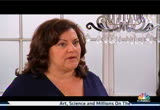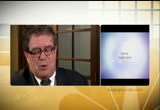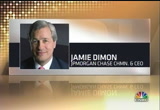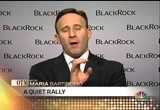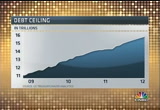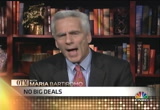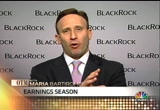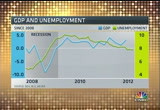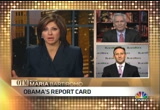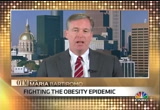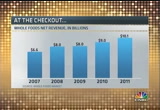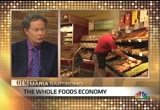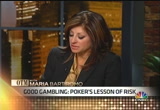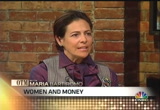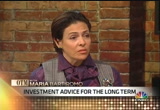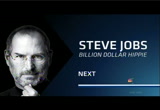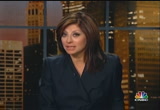tv On the Money With Maria Bartiromo CNBC January 20, 2013 7:30pm-8:00pm EST
7:30 pm
you're unstoppable. >> thank you. >> okay? >> so, on a scale of 1 to 5, how do you think you did? >> i'm hoping it was a 5. >> you're right. >> oh, wow! >> i felt really relieved and super-excited. >> i was just full of pride. she's giving more of herself now as opposed to in the past. >> you're all about design. >> mm-hmm. >> so i have for you some annual subscriptions along with a one-year membership to the design exchange. >> thank you so much. >> you deserve it. >> maybe now i'm more of a nice princess -- more gracious towards others and really in tune with what my friends and family are feeling instead of focusing just on myself. >> ♪ i can tell, i can tell ♪ she loves to go >> ♪ shop >> ♪ she's all out of control ♪ she can't >> ♪ stop >> ♪ designer clothes, jewels, hair ♪ ♪ she's throwing money everywhere ♪
7:31 pm
♪ my head is spinning ♪ head is spinning hi, everybody. welcome to "on the money." i'm bartiromo. the markets hit five-year highs. is it too late to get? plus, what barack obama has done right and wrong over the last four years. plus, food for thought. the ceo who says oba. and know when to hold them and when to fold them. the importance of keeping a poker face for women in the business world. "on the money" begins right now.
7:32 pm
here's a look at what's making news as we head into a new week "on the money." the stealth market rally keeps powering forward, and the major indices are at or near five-year highs. the markets have been powered by so much money ones sidelines, new money coming into the market at the beginning of the year as well as encouraging economic news and just a lack of bad news when it comes to earnings. stocks kept on climbing on friday. lots of earnings news for lots of big financial companies this week. goldman sachs passed expectations, as did morgan stanley, while citi fell well short. jpmorgan chase beat expectations, but cut chairman jamie dimon's compensation in half because of the so-called london whale trade. retail sales were up more than expected in december, 0.5%. americans ignored worries about higher taxes and kept heading to the stores.
7:33 pm
consumption makes up 70% of the u.s. economic growth. the debt ceiling debate, a presidential report card, and a quiet market rally. what does it mean for your money? joining us now, jared bernstein and former chief economist to vice president biden. also with us is a chief investment strategist with blackrock. thank you so much for joining us. >> thanks for inviting us. >> thank you. >> russ, let me kick it off with you. friday, a pretty good rally. is this rally for real? do you think it's sustainable going forward as we continue through this earnings period? >> i think in the short term it is. i think we're probably going to hit a road bump in february. the reason i say that is we've got a lot of flows coming into the market early in the year. people are nervous in december. they're coming back into stocks. that's a good thing over the longer term. we do have some issues coming up. the debt ceiling, obviously one of them. the second question is as we start to get january's economic data, how big of a hit do we have from the tax increases, the
7:34 pm
expiration, the payroll tax hold darks and what do those numbers, which may be a bit on the soft side, do to stocks? >> absolutely. that is the question of the day, isn't it, jared? the debt ceiling debate, the u.s. set to hit that $16 trillion limit on borrowing in the next month, if we haven't hit it yet. let's take a listen to what president obama had to say about the potential battle looming in congress. >> markets had could go haywire, interest rates would spike for anybody who borrows money. every homeowner with a mortgage, every student with a college loan, every small business owner who wants to grow and hire. >> jared, how does this play out? >> well, we're beginning to hear lots of sounds from republicans that are more in a compromising mode than we heard a week ago. right now they're talking about perhaps an increase in the debt ceiling that lastins for a coup months. frankly, and russ may agree with me here, i don't think markets
7:35 pm
would react very approvingly to basically just another lurch from crisis to crisis. it wasn't too long ago that, maria, you and i were in these chairs talking about the fiscal cliff. now the debt ceiling. do you want to have this discussion two months from now? >> i think everybody believes this debt ceiling will be extended. jared, you know these guys well. you worked right there with vice president biden. let me get your take on this. if we keep fighting about spending cuts and raeni ireinine spending, how come we haven't seen any real proposals for spending cuts? are we going to see that, you think? >> i do think so. i think we have to go through this, unfortunately. at least recent history suggests we have to go through this crisis mentality to get there. thus far, there's been $1.5 trillion in spending cuts that have been made. they're on the books. there's been $600 billion in tax
7:36 pm
increases made on the books. that's over $2 trillion in deficit reduction over ten years. doesn't get us all the way there, but it does get us largely about two-thirds of the way there to debt stabilization, at least within a ten-year budget window. >> russ, what do you think? of course, we are approaching this with caution. we know that there's going to be more back and forth. in the middle of it all, we have earnings season. you know, already some people are saying that this anticipation of all of these cliffs, cliff after cliff, has already impacted the earnings period. what are you looking at? what are you seeing from the fourth quarter reporting season so far? it's been a big week obviously this week for financials. >> we're seeing decent performance. i think compliments to corporate america. they've been able to grind out strong earnings growth with a relatively weak recovery. margins remain much higher than people thought. this has helped. we're seeing a recovery in the rest of the world. that's also helped. i think it's going to be a decent year. i don't think the problem is the trajectory of the economy. i think the question is how much
7:37 pm
will these issues from washington, whether it's the debt ceiling, the sequester, the lingering uncertainty over the long-term budget picture, undermine confidence, lower the valuations of u.s. companies because people just have less confidence in the long-term trajectory. >> and jared, president obama starts his second term next week. his inauguration, of course, monday. what has he done right? the last four years, in your view? what could he have done better or has he done wrong? >> four years ago right around this time when i was a member of the administration's economics team, i was remembering the juxtaposition of great hope and expectations and the real horror of what was going on in macroeconomy. gdp contracting at 9%. i think the president came in and hit very hard and broke the back of the great recession a lot sooner than people expected. certainly the financial markets were reflated much more quickly
7:38 pm
and at less expense than people expected. pretty soon, really by the second half of 2009, gdp was growing, and it's been growing since. i think on the other side, you ask some things that haven't gone as well. i think the president is great at explaining his vision. i think he has yet to really kind of explain the granularity about what he's up to day to day, particularly around the economy, in ways you may recall bill clinton did so effectively at the convention. i also think that politically, you know, the president doesn't quite like to mix it up in these deals the way, say, his vice president i think very effectively does. i think that that's something that would be good to work out in the second term. >> great analysis. russ, what about investors at this point? what should we be doing with our money in the face of all of this? i know you like emerging markets and smaller countries. why is that, and how do you get a piece of that growth? >> the outlook for the u.s., i
7:39 pm
think we're going to have a decent year. it may not be great because of the fiscal drag. i'm confident, absent more problems from washington, the u.s. economy will expand. the question is, what do you pay for that? we've been advocating more of a position internationally. the argument there is not that there aren't problems in emerging markets or europe but that those problems are better reflected in the price. the s&p 500 trades at a price to book of about 2.2. it's roughly half that level in europe. >> gentlemen, thank you. >> thank you. >> see you soon. appreciate your time tonight. up next, we're on the money and on the shopping list from the price of milk to the price of health care for his employees, whole foods co-founder and ceo john mackey joins me to talk business. and some women are unleashing their inner card sharks. that's no blush. as we take a break, take a look at how the stock market endsed the week. flsh . living with moderate to severe rheumatoid arthritis
7:40 pm
means living with pain. it could also mean living with joint damage. humira, adalimumab, can help treat more than just the pain. for many adults, humira is clinically proven to help relieve pain and stop further joint damage. humira can lower your ability to fight infections, including tuberculosis.
7:41 pm
serious, sometimes fatal events, such as infections, lymphoma, or other types of cancer, have happened. blood, liver and nervous system problems, serious allergic reactions, and new or worsening heart failure have occurred. before starting humira, your doctor should test you for tb. ask your doctor if you live in or have been to a region where certain fungal infections are common. tell your doctor if you have had tb, hepatitis b, are prone to infections or have symptoms such as fever, fatigue, cough, or sores. you should not start humira if you have any kind of infection. ask your rheumatologist about humira, to help relieve your pain and stop further joint damage. we're all having such a greawe've decided tolf, put aside our rivalry. 'cause all our states are great. and now is when the gulf gets even better. the beaches and waters couldn't be more beautiful. take a boat ride or just lay in the sun. enjoy the wildlife and natural beauty. and don't forget our amazing seafood. so come to the gulf, you'll have a great time. especially in alabama. you mean mississippi. that's florida. say louisiana or there's no dessert.
7:42 pm
brought to you by bp and all of us who call the gulf home. i think that would be a great mistake. i don't think that would solve anything. i know they're going to try it, and how far it will go with their game of chicken, i have no idea. >> one thing the public should understand is we're not afraid of anyone. we're not afraid of bringing any kind of case against anyone no matter how big they are, how wealthy they are, or how prominent they are. sometimes it takes a while to build those cases. >> too often the debate becomes very simplistic. don't drink soda and the obesity epidemic will somehow go away. we don't believe that's true. we don't believe we've caused the obese i dity epidemic.
7:43 pm
>> part of the conversation today, a healthy lifestyle is part of the mission. business outlook of my next guest. john mackey is the co-founder of whole foods as well as the author of "conscious capitalism." why do you think business is heroic? >> it's the greatest value creator in the world. it creates value for its customers, employees, investors, suppliers, for the communities it's part of. it doesn't get credit for that. the narrative about business has been hijacked by the critics, the enemies. it's portrayed as gritty and exploitative, when in fact it's lifting humanity up to higher levels of prosperity. >> i'm so glad you said that. i completely agree. it doesn't get the credit. you're absolutely right. i want to talk about the value you've created with whole foods, for sure. let me stay on the book for a
7:44 pm
moment. you discuss keeping all the stake holders well. investors, employees, consumers. how do you balance healthy business with that mission? isn't it impossible to please everybody all the time? how do you do it? >> it's not always easy, but i don't think it's really about balancing. that kind of implies these trade-offs. the conscious business creates strategies where all of the stake holders are winning simultaneously. when you talk about trade-offs, it's really a failure of imagination and creativity. a conscious business figures out ways to avoid those trade-offs. >> you've made public comments about health care reform. i want to talk about this because i speak to a lot of ceos all the time. the affordable care act is something they continue to say is way too expensive, impacting their business. earlier this week, you likened the affordable care act to fascism. comments i know you've since walked back or pedaled away from saying it was a poor choice of words. what did you mean? talk to us about what you were trying to articulate.
7:45 pm
>> it's a poor choice of words because it has so much emotional baggage for people because of world war ii. i was trying to articulate we're moving away from free enterprise capitalism, which allows creativity and allows the marketplace to create progress in health care, to more and more government controls, which will bog it down and raise costs. it will not produce the progress that we need in health care. >> what impact does this reform have on your business? >> it's raising costs. it's the opposite of being affordable health care because it's making it more expensive for businesses like whole foods. as a result, that's less money that we have to pay our team members for wages or other benefits. health insurance just grows as a percentage of what the total compensation that we're paying people is. >> i know you've been very thoughtful about this subject. you've been ceo since 1980. the company has done very well.
7:46 pm
you're offering coverage to employees working more than 30 hours a week. you've seen tremendous growth. your stock up more than 1,000% since the worst of the financial crisis. tell me about the consumers' attitudes about foods. has it changed over this time? the cost, the sources of their food, what kind of sentiment changes have you seen from your customers? >> lots of different trends in this society. there's definitely a trend towards healthier eating. americans are now 69% overweight, 36% obese. we spend 80% of our health care dollars in lifestyle diseases such as heart disease, cancer, diabetes. so there is a trend towards healthier eating. >> all preventible, by the way. >> that's right. there's also a trend, of course, to more junk food. so we have different trends in this society. of course, my business focuses on the healthier trends. that's what wae're trying to do help america eat healthier and live longer. >> you know so much about this.
7:47 pm
how do you eat? are you a vegan? >> i am, yes. ten years now. no oil vegan. try to avoid eating processed foods like sugar and white flour. it's worked very well for me. i very seldom get sick, feel great. i feel better today at 59 than when i was 39. >> isn't that wonderful? >> it is. >> some people question whether or not organic is worth it. is it worth the extra money? >> i think that it is. it's definitely, i think, better for the environment. it lowers the risk of pesticides in the ground water, pesticides in our own bodies. i think that's a good thing. >> john, it's great to have you on the program. >> great to be here, maria. >> john mackey joining us. up next, why women and gambling may make a better combination for the economy than you think. and look for us on facebook. back in a moment.
7:50 pm
i am a poker player. there is really nothing greater than walking into a poker room in las vegas full of men. reminds me of my first job at merrill lynch. >> i think women do a few things better than men. they have better intuition and have a better poker face. >> it started with inviting just our clients and prospective clients. it turned into kind of a fun
7:51 pm
networking group. you'll see who the very asse assertive ones are and who the passive ones are. you learn a lot about other people who play this game. >> there are ceos here. there are women who sold companies for $100 million. there are women going through public divorces that need to learn negotiation skills. >> if you want to be good at the conference table, you have to be good at poker. >> half of this game is reading the table. >> so does knowing when to hold them and when to fold them make for better businesswomen? alexandra lebenthal started a series of ladies poker nights in new york. great to see you again. >> thank you. >> so why poker? what's the payoff? >> it's all about the poker face. i say that with no joke, although i actually have a terrible poker face, for those who know me. it's really about the negotiation, about holding your cards to your chest and learning how to not give away what you're thinking or what you're doing. >> wow, i think that's really
7:52 pm
interesting. that's a great analogy. do you think women as a group tend to give it away and sort of, you know, put themselves at a disadvantage as a result of that? >> i think women absolutely do that. they've done that in business, and they do that particularly when it comes to investing their own money, which is always such a tragic thing to see because oftentimes a woman will say, i know i'm really stupid, i know i have a really small account, you shouldn't take time to bother with me, instead of presenting themselves as somebody who actually has money to invest that should be taken seriously. so the poker game really allows everybody to kind of explore that side of them a little bit. >> i love that. now, i have to say, i guess it was this week there was a study, or recently, that female hedge fund managers produced a better return, a return of almost 10% in the first three quarters of the 2012, but they actually had a better overall performance than male hedge fund managers. >> i saw that too, and it made me smile.
7:53 pm
i think that that study has come out before, and it has shown the same thing. now, just as women may put themselves out too much, i think when it comes to women being professional investors, that may actually be an advantage for them. they may think more clearly, more carefully, more thoughtfully and more emotionally, perhaps, about the investments they're making. >> do you think the financial services industry is serving women well? do they speak to women? do they market to women in terms of their own risk profiles or how to invest? >> the financial services industry has been trying to speak to women for 20 years. it started with some really beautiful pink and purple brochures some time ago. they haven't quite gotten it yet. it's not just about the stuff you're investing in. it's about all of the emotion and thought behind it. that's what women connect with, not what the return is, what the yield is, what the price is.
7:54 pm
>> let me ask you about investing today. how would you invest in this environment? the muni bond market, obviously you and your father have long specialized in. what's your take on how to allocate capital today? >> you know, there are obviously so many things going on. the municipal bond industry is still somewhat a question in terms of what will happen as the budget talks continue, and will there be some form of tax on municipals? i think the important thing for people to do, and this is both men and women, is not to make any rash moves when things happen in washington or when there are major moves. really try and remember that you're planning for your life. you want to think about what your goals are and how your investments actually fit into that. one of the most important things that people should be doing, actually every year, is sitting down and doing a lifestyle analysis and figuring out how much am i spending, how much do i have to save, and how much do
7:55 pm
i have to invest? have my goals changed? i recommend people work with a financial adviser, a financial planner, and really take the steps to map out what investments will fit into that to serve your needs. >> alexandra, great to have you an the program. >> great to be here. thanks. >> thanks so much. alexandra lebenthal joining us. up next, a look at the news this week that will have an impact on the money. and where are the top jobs? finding the best companies to put in a day's work. we're searching for the answers. stay with us. try pepto-bismol to-go, it's the power of pepto, but it fits in your pocket. now tell the world daniel... of pepto-bismol to-go. a regular guy with an irregular heartbeat. the usual, bob? not today. [ male announcer ] bob has afib: atrial fibrillation not caused by a heart valve problem, a condition that puts him at greater risk for a stroke. [ gps ] turn left. i don't think so. [ male announcer ] for years, bob took warfarin, and made a monthly trip to the clinic to get his blood tested.
7:56 pm
but not anymore. bob's doctor recommended a different option: once-a-day xarelto®. xarelto® is the first and only once-a-day prescription blood thinner for patients with afib not caused by a heart valve problem, that doesn't require routine blood monitoring. like warfarin, xarelto® is proven effective to reduce the risk of an afib-related stroke. there is limited data on how these drugs compare when warfarin is well managed. no routine blood monitoring means bob can spend his extra time however he likes. new zealand! xarelto® is just one pill a day, taken with the evening meal. and with no dietary restrictions, bob can eat the healthy foods he likes. do not stop taking xarelto® rivaroxaban without talking to the doctor who prescribes it for you. stopping may increase your risk of having a stroke. get medical help right away if you develop any signs or symptoms of bleeding, like unusual bruising or tingling. you may have a higher risk of bleeding if you take xarelto® with aspirin products, nsaids or blood thinners.
7:57 pm
talk to your doctor before taking xarelto® if you currently have abnormal bleeding. xarelto® can cause bleeding, which can be serious, and rarely may lead to death. you are likely to bruise more easily on xarelto®, and it may take longer for bleeding to stop. tell your doctors you are taking xarelto® before any planned medical or dental procedures. before starting xarelto®, tell your doctor about any conditions, such as kidney, liver or bleeding problems. ready to change your routine? ask your doctor about once-a-day xarelto®. for more information including cost support options, call 1-888-xarelto or visit goxarelto.com.
7:58 pm
for more on our show and our guests, check out the website, otm.cnbc.com. and i hope you'll follow me on twitter and google plus. first, here's a look at the stories coming up in the week ahead that may move the marks and impact your money. monday is the second inaugural for president barack obama. it's also a market holiday in observance of martin luther king day. then we are in the heavy part of earnings season for the fourth quarter. reports are expected from johnson & johnson, mcdonald's, verizon, proctor & gamble. also coming out in tech, apple, ibm, google, and microsoft. tuesday, exisales of existing hs will be out. also by the way, friday is treasury secretary timothy geithner's last day on the job. jack lew takes over from there. finally, "fortune" magazine releasing its annual list of the companies to look for. google was tops thanks to the 100,000 hours of free massage
7:59 pm
and a seven-acre sports complex. pretty good. rounding out the top five are sas, a data analytics firm, chg health care in salt lake city, the boston consulting group and wegmans food market. 78 of those best companies are looking to fill more than 65,000 jobs this year. that'll do it for us for today. thank you so much for joining me. next week, i'll be reporting from the world economic forum in switzerland where business and political leaders will be gathering to talk global issues. we'll take you there. each week keep it here where we are "on the money." have a great week, everybody. see you again next weekend.
187 Views
IN COLLECTIONS
CNBC Television Archive
Television Archive  Television Archive News Search Service
Television Archive News Search Service 
Uploaded by TV Archive on

 Live Music Archive
Live Music Archive Librivox Free Audio
Librivox Free Audio Metropolitan Museum
Metropolitan Museum Cleveland Museum of Art
Cleveland Museum of Art Internet Arcade
Internet Arcade Console Living Room
Console Living Room Books to Borrow
Books to Borrow Open Library
Open Library TV News
TV News Understanding 9/11
Understanding 9/11